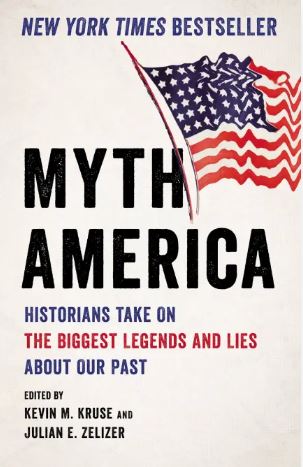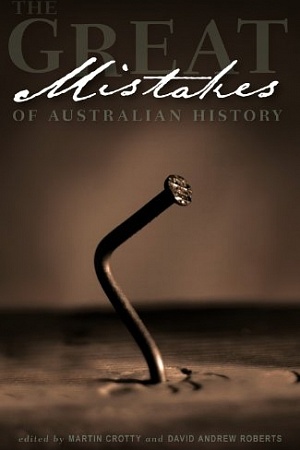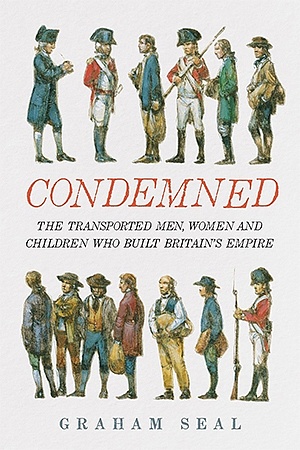Myth America: Historians take on the biggest legends and lies about our past
Basic Books, US$32 hb, 391 pp
Sacred days, sacred cows

All nations are sustained by myth-making, but some myths are more problematic than others. Australia has long taken heart from the myth of Anzac, the story that in their ‘baptism of fire’ at Gallipoli, in 1915, Australian men gave birth to the nation. Notably militarist in orientation, extolling the feats of men at war, extensive government investment has helped render our national creation myth sacrosanct. Thus, when Alan Tudge, a former Coalition minister for Education and Youth, contemplated suggested changes in the national history curriculum in 2021, he declared that the school curriculum must never present Anzac as a ‘contested idea’. Anzac Day was ‘the most sacred day in the Australian calendar’.
The importance of contesting historical myth is precisely the purpose of a new collection of essays about American history, edited by Princeton professors Kevin M. Kruse and Julian E. Zelizer. Avowedly political in intention, Myth America: Historians take on the biggest legends and lies about our past brings together twenty essays on assorted ‘myths’ relating to a wide variety of subjects, including the American creation myth, the drafting of the Constitution (was Madison really so important or was Washington ‘the man’?), American exceptionalism ( a term invented in the 1920s), the nature of feminism (is it really anti-family?), and ‘the vanishing Indian’ (did indigenous peoples simply disappear or were they dispossessed and destroyed?).
There are also chapters on American socialism, the civil rights movement, the New Deal, immigration (‘they keep on coming’), Confederate monuments and the Lost Cause, voter fraud, and various other topics, but none relating to military history or Americans’ fighting prowess. The War of Independence is ignored in favour of the drafting of the Constitution while the Civil War is mentioned only in terms of its political legacies (‘Confederate Monuments’, ‘The Southern Strategy’). The Vietnam War is discussed, not in relation to its battles but apropos of alleged government betrayal of veterans and the rise of white power movements.
Continue reading for only $10 per month. Subscribe and gain full access to Australian Book Review. Already a subscriber? Sign in. If you need assistance, feel free to contact us.












Comment (1)
Leave a comment
If you are an ABR subscriber, you will need to sign in to post a comment.
If you have forgotten your sign in details, or if you receive an error message when trying to submit your comment, please email your comment (and the name of the article to which it relates) to ABR Comments. We will review your comment and, subject to approval, we will post it under your name.
Please note that all comments must be approved by ABR and comply with our Terms & Conditions.